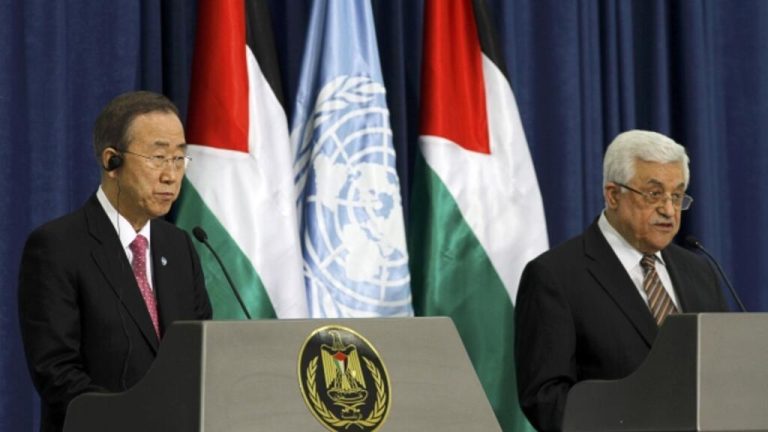Cautious signs of progress emerged from the latest Middle East peace talks, even as deep divisions and violence on the ground underscored the fragility of the effort. Negotiators edged toward limited confidence-building steps – including measures to stabilize a ceasefire, expand humanitarian access, and consider phased prisoner exchanges – while deferring the thorniest questions of borders, security, and the status of Jerusalem. With political pressures mounting on all sides, momentum may prove difficult to sustain without tangible improvements for civilians and clear mechanisms to verify compliance.
Table of Contents
- Ceasefire Framework Advances With Mutual Concessions and Verified Humanitarian Corridors
- Core Disputes Persist Over Borders Refugees and Security Guarantees
- Actionable Path Forward Prioritize Prisoner Exchanges International Monitoring and a Regional Reconstruction Fund
- In Conclusion
Ceasefire Framework Advances With Mutual Concessions and Verified Humanitarian Corridors
Negotiators reported tangible movement as both sides accepted limited trade-offs in exchange for rigorously monitored aid access, outlining a phased pause in hostilities tied to independently verified benchmarks. Officials said the emerging draft sequences a reduction in heavy weapons use, incremental withdrawals, and detainee exchanges with strict auditing of relief routes, using GPS-tracked convoys, tamper-evident seals, and independent escorts to prevent diversion. Mediators emphasized reciprocity, verification, and time-bound benchmarks, backed by dispute-resolution channels, no-strike assurances for civilian sites, and a snap-back mechanism if violations are substantiated, while donors prepared conditional disbursements linked to corridor performance and civilian protection metrics.
- Phased tranches: Ceasefire steps unlocked only upon verified compliance.
- Verified corridors: Third-party inspection, GPS telemetry, and biometric manifests for aid cargo.
- Deconfliction: Real-time hotlines and updated no-strike lists for hospitals, schools, and shelters.
- Independent monitoring: Neutral observers with guaranteed access and public incident reporting.
- Accountability: Joint review panels, fixed reporting windows, and proportional penalties for breaches.
- Confidence-building: Detainee exchanges, remains repatriation, fuel deliveries, and mine clearance.
- Local liaison: Community committees, including women’s and humanitarian representatives, to manage access.
- Safeguards: Snap-back clauses, calibrated sanctions relief, and escrowed reconstruction funds.
Core Disputes Persist Over Borders Refugees and Security Guarantees
Negotiators describe cautious movement but acknowledge that unresolved fundamentals continue to define the pace and scope of any accord, with draft texts converging on technical language while positions diverge over the delineation of borders, durable solutions for refugees, and verifiable security guarantees that can survive leadership changes and shifting regional dynamics.
- Borders: Talks center on mutually agreed land exchanges, joint demarcation commissions, and protected transit corridors, with dispute-resolution mechanisms to manage future incidents and prevent unilateral alterations on the ground.
- Refugees: Proposals blend limited return pathways, third-country resettlement, and compensation via an internationally managed fund, paired with civil documentation initiatives to restore rights and enable family reunification where feasible.
- Security guarantees: A phased regime under discussion includes third-party monitoring, demilitarized zones, early-warning systems, and conditional normalization steps, anchored by verification triggers, snapback provisions, and strict timelines for compliance.
- Sequencing and enforcement: Both sides are weighing step-for-step obligations-linking territorial moves, humanitarian access, and security benchmarks-to ensure that progress remains reciprocal and reversible if commitments are breached.
Actionable Path Forward Prioritize Prisoner Exchanges International Monitoring and a Regional Reconstruction Fund
Negotiators are converging on a practical sequence that ties immediate humanitarian relief to verifiable security steps and medium‑term economic incentives, with mediators signaling consensus around monitored exchanges, neutral oversight, and a ring‑fenced funding mechanism to stabilize daily life while building momentum for broader accords.
- Phased prisoner exchanges: Prioritize women, minors, elderly, and the infirm; pre‑agreed tranches under 48-72 hour localized pauses; ICRC-led registration, medical screening, DNA/biometric verification, and transparent lists communicated to families; expansion of exchange windows linked to verified compliance.
- International monitoring: A UN-ICRC coordination cell with Arab League and EU support deployed to crossings, detention sites, and aid corridors; use of GPS-tracked convoys, sealed transfer protocols, and body‑camera documentation; weekly public compliance bulletins and incident reporting to reinforce accountability.
- Regional Reconstruction Fund: A multi‑donor trust chaired by the World Bank/Islamic Development Bank, with regional states and private partners; disbursements conditioned on ceasefire and demining benchmarks; independent audits, a public transparency portal, and local procurement targets to drive jobs, restore power/water, and rehabilitate health and education services.
- Enforcement and timelines: A joint operations room and 24/7 hotline for de‑escalation; rapid arbitration within 24 hours on alleged breaches; calibrated “snap‑back” measures-temporary fund suspension or access restrictions-if violations occur; milestone roadmap (Day 0-7: first exchange tranche; Day 30: expanded crossings and aid throughput; 3-6 months: core utilities restored to agreed thresholds).
In Conclusion
As negotiators cite incremental progress, the path ahead remains narrow. Key disagreements over security arrangements, territorial questions, and humanitarian access continue to test the limits of what each side can accept, even as confidence-building steps are weighed.
Talks are expected to continue in the coming days, with mediators pushing to convert tentative understandings into a more durable framework. Much will depend on whether negotiators can insulate the process from pressures on the ground and from political headwinds at home.
For now, the modest gains underscore both the possibilities and the fragility of the moment. Whether this momentum marks a turning point or another brief opening will become clearer as the parties return to the table.


